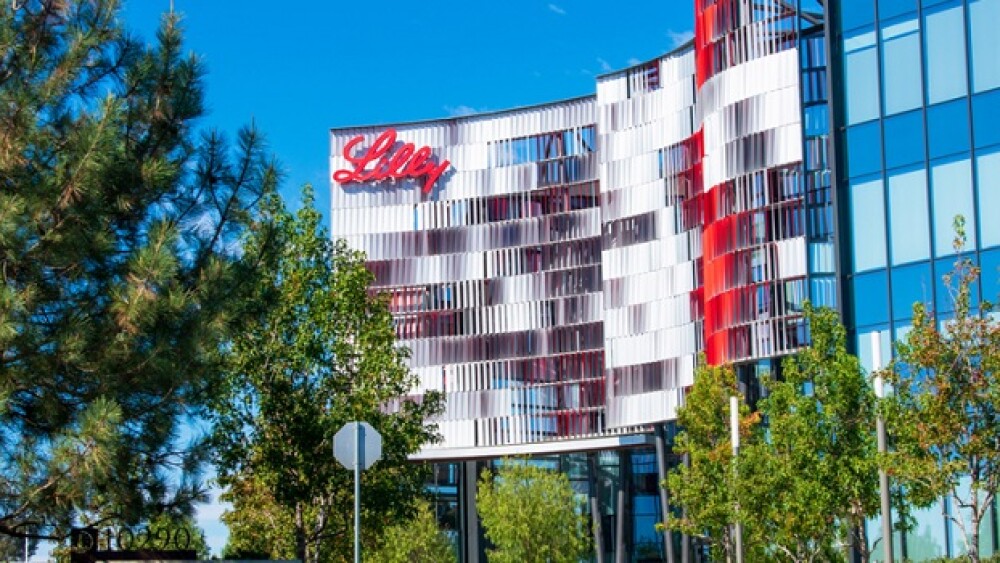The U.S. Food and Drug Administration has accepted ADC Therapeutics’ Biologics License Application (BLA) and granted priority review for the company’s relapsed/refractory diffuse large B-cell lymphoma (DLBCL) treatment, loncastuximab tesirine (Lonca).
The U.S. Food and Drug Administration (FDA) has accepted ADC Therapeutics’ Biologics License Application (BLA) and granted priority review for the company’s relapsed/refractory diffuse large B-cell lymphoma (DLBCL) treatment, loncastuximab tesirine (Lonca), bringing the drug one step closer to a population in need to additional therapeutic options to manage their disease.
A Prescription Drug User Fee Act target date of May 21, 2021 has been set by the agency.
Loncastuximab tesirine, an antibody drug conjugate (ADC), consists of a humanized monoclonal antibody designed to target human CD19, a treatment target for B-cell malignancies. The drug, once bound to a CD19-expressing cell, is internalized by the cell. This is followed by a subsequent release of a “warhead” which binds irreversibly to DNA, disrupting essential DNA metabolic processes and eventually leading to cell death.
ADC Therapeutics submitted the BLA to the FDA in mid-September based on findings from LOTIS 2, a pivotal Phase II clinical trial involving 145 patients with relapsed/refractory DLBCL. This single-arm, open-label, multicenter study demonstrated a 48.3% overall response rate (ORR), which the company said exceeded their target primary endpoint. There was also a complete response (CR) rate of 24.1% and manageable toxicity. The most common grade three or higher treatment-emergent adverse events in more than 10% of patients were neutropenia (25.5%) with low incidence of febrile neutropenia (3.4%), thrombocytopenia (17.9%), gamma-glutamyl transferase increase (16.6%) and anemia (10.3%).
Findings from the LOTIS 2 trial were presented at the virtual 25th Congress of the European Hematology Association (EHA25). Additional data from subgroup analyses of the trial will be presented at the 62nd American Society for Hematology Annual Meeting on Saturday, December 5, 2020.
“The FDA’s acceptance of our BLA and granting of priority review for Lonca is a tremendous accomplishment that brings ADC Therapeutics one step closer to being able to offer patients with relapsed or refractory DLBCL a greatly needed new treatment option in 2021,” according to a statement made by Chris Martin, ADC Therapeutics’ Chief Executive Officer. “We look forward to working with the FDA during its review of our BLA submission for Lonca. Our organization remains focused on robust planning for a successful launch next year.”
In addition, loncastuximab tesirine is currently undergoing investigation in the Phase I/II LOTIS 3 clinical trial in combination with ibrutinib in patients with relapsed/refractory DLBCL or mantle cell lymphoma. Interim results from this trial, also presented at the virtual EHA25, demonstrated an ORR of 75.0% and a CR rate of 58.3%, suggesting the drug has promising potential to advance into earlier lines of treatment with other therapies. The Phase III LOTIS 5 confirmatory clinical trial is also studying a loncastuximab tesirine combination in patients with relapsed or refractory DLBCL, using rituximab as the additional therapy.
Another cancer drug in the company’s pipeline, camidanlumab tesirine, is being studied in combination with pembrolizumab for the treatment of hematological malignancies and solid tumors. In early November, ADC Therapeutics announced it had dosed its first patient in its ongoing Phase Ib clinical trial of the monoclonal antibody and checkpoint inhibitor combination regimen. The company’s Chief Medical Officer, Jay Feingold, MD, PhD, said in a statement that preliminary pharmacokinetic and biomarker data from the trial support the evaluation of the dual treatment approach.





